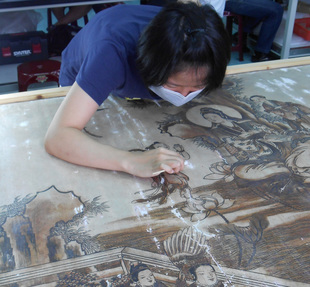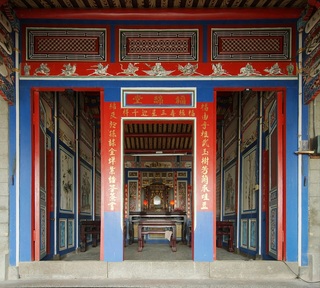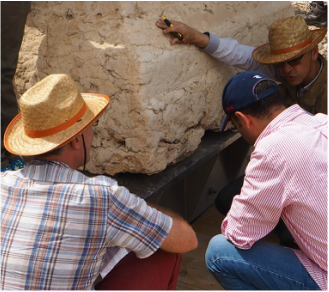About the Department
National Yunlin University of Science and Technology (Yuntech) hosts one of the largest conservation schools in South East Asia, with special focus on the preservation of both tangible and intangible cultural heritage. The Department is divided into four sections which each focus on a particular aspect of the field of cultural heritage protection and development - Conservation-Restoration and Conservation Science; Built Heritage Preservation and Community Revitalisation; Sustainable Cultural Heritage Management; and Theory of Cultural Administration.
The Department of Cultural Heritage Conservation offers both Bachelor's and Master's programs in cultural heritage conservation. At undergraduate level students take general courses that introduce them to what culture is, what cultural heritage is and the different approaches to conservation and how it impacts on the local community. Later they take courses in chemistry, materials science, architectural drawing, photography and documentation. Students also have the opportunity to learn traditional crafts such as bamboo weaving/basketry; ceramics; clay modelling; wood carving; and lacquer-ware. After the second year students can begin to specialise in a particular area of conservation that interests them. In the summer vacation, between the second year and the third year of study, students are required to undertake an internship related to their studies.
The Department of Cultural Heritage Conservation offers both Bachelor's and Master's programs in cultural heritage conservation. At undergraduate level students take general courses that introduce them to what culture is, what cultural heritage is and the different approaches to conservation and how it impacts on the local community. Later they take courses in chemistry, materials science, architectural drawing, photography and documentation. Students also have the opportunity to learn traditional crafts such as bamboo weaving/basketry; ceramics; clay modelling; wood carving; and lacquer-ware. After the second year students can begin to specialise in a particular area of conservation that interests them. In the summer vacation, between the second year and the third year of study, students are required to undertake an internship related to their studies.
Students at the Department of Cultural Heritage Conservation have the opportunity to study a wide range of heritage-related subjects relating to both tangible and intangible cultural heritage - including cultural revitalisation and marketing.
The Department of Cultural Heritage Conservation offers a choice of Master's programs in cultural heritage conservation. One option is a standard two-year program in one of the four specialist subject areas described above. The second option is an intensive two-year program in English. This is aimed at students from South East Asia for whom Mandarin Chinese may not be their first language.



